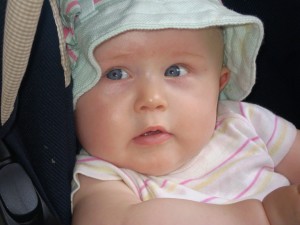
Recent research suggest that infants as young as 18 months can tell when someone is “faking” their feelings when their emotions and expressions don’t align with an event.
New research from Concordia University, reported on by Medical Xpress suggest that infants 18 months and older have the ability to detect whether a person’s emotions are justifiable. These findings are significant in that they show that babies emotion recognition and social cognitive abilities are developed enough to understand how the meaning of an experience is directly linked to the expressions that follow.
“Our research shows that babies cannot be fooled into believing something that causes pain results in pleasure. Adults often try to shield infants from distress by putting on a happy face following a negative experience. But babies know the truth: as early as 18 months, they can implicitly understand which emotions go with which events,“ says psychology professor Diane Poulin-Dubois.
92 infants between 15-18 months watched actors go through several emotional reactions that either went with or against pantomimed experiences.
At 15 months, the infants did not show major differences in their reactions to these events. They showed empathy in their faces to all sad faces they seen regardless of if it matched the event that took place directly before the sad facial expression of the actor. However, at 18 months, the infants only showed empathy toward the person when their sad face was justified, meaning when the sad face coincided with a sad event.
Psychology researcher Sabrina Chiarella noted, “The ability to detect sadness and then react immediately has an evolutionary implication. However, to function effectively in the social world, children need to develop the ability to understand others’ behaviors by inferring what is going on internally for those around them.“